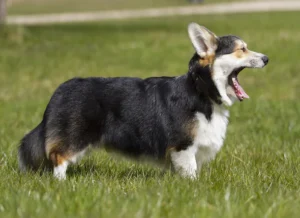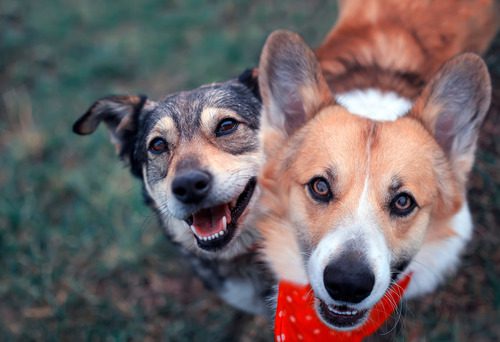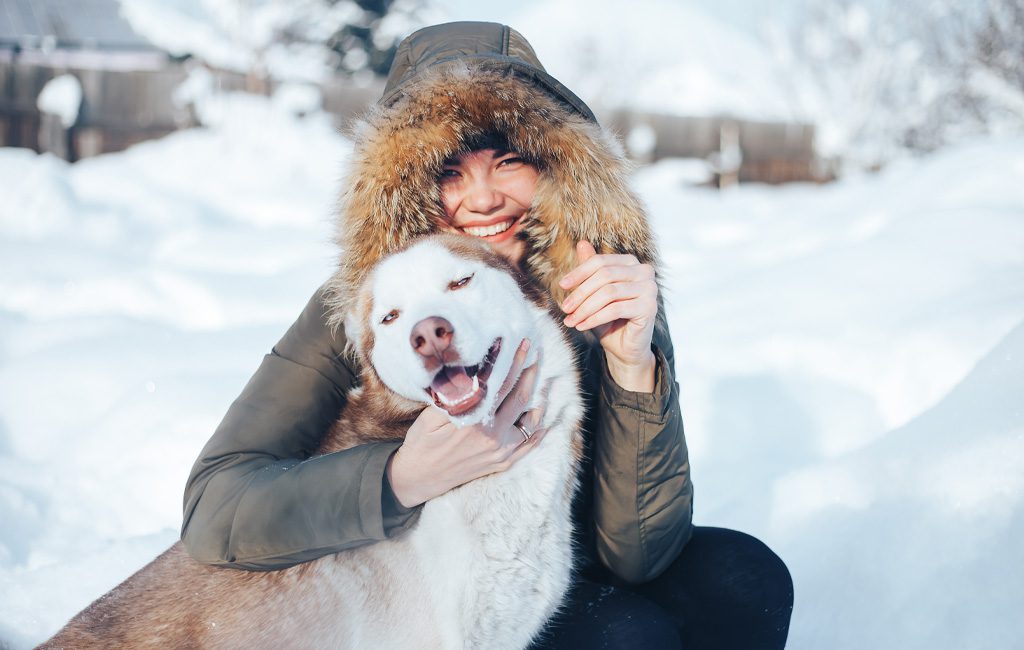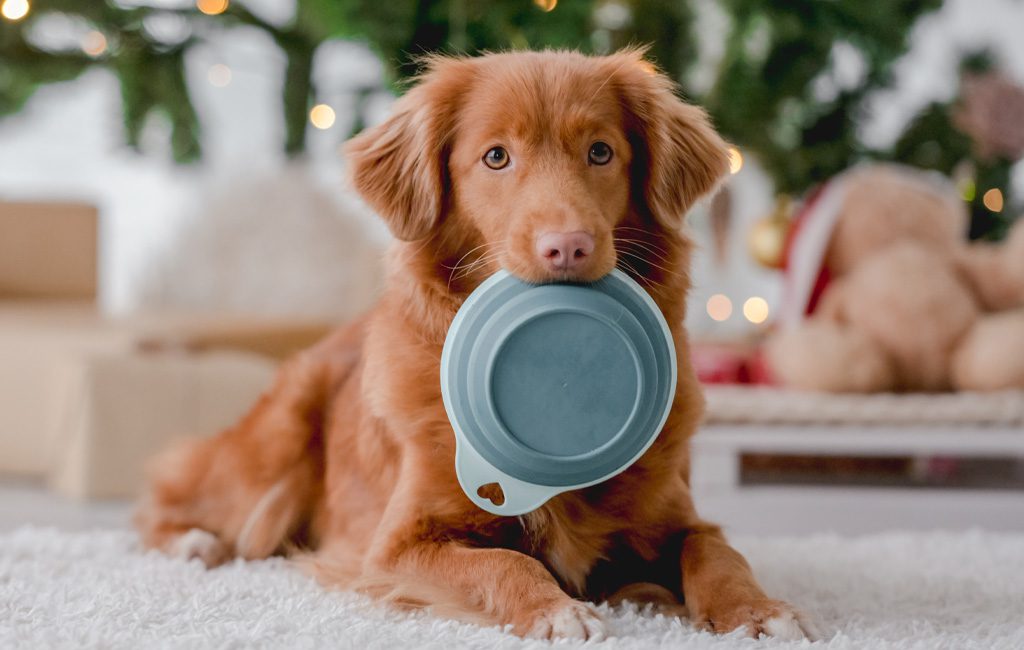Why Does My Dog Keep Coughing in Raleigh, NC?
If your dog is coughing in Raleigh, the best thing to do is take them to the vet. Your vet will be able to treat the cough once they can properly diagnose the cause. There are many different reasons and factors that may be contributing to your dog’s cough. Fortunately, most conditions that cause dogs to develop a cough are easily treated.
Just like in humans, a persistent cough in dogs can lead to further issues and complications. That is why it is always best to have them seen by a vet for further evaluation. If your dog has developed a mild cough, it makes sense to take a few days to observe and see if the cough will clear on its own. However, when a dog’s cough is severe or gets worse, make an appointment with your vet immediately.
Common Reasons for Coughing in Dogs
Dog Heart Disease
One of the most common reasons for a dog to develop a cough is when something is not functioning properly with their heart. Disease in the heart valves or muscles can prevent a dog’s heart from efficiently pumping blood throughout their body. Coughing results when parts of their heart enlarge and compress major airways in their lungs. When a dog’s heart isn’t pumping efficiently, it can even cause fluid to accumulate in the lungs. This can be another cause for coughing.
If your dog’s cough is related to heart disease, it is probably a soft and continuous cough that worsens at night. Most of the time when heart disease is caught early, it is treatable by your veterinarian. If your dog develops a continuous cough, it is recommended to have them checked out by their vet. In most cases, medications are the main way to treat heart disease in dogs. Other treatments may include diet changes, weight loss, and occasionally surgery.

Dog Pneumonia
In dogs, a soft and moist sounding cough can be due to pneumonia. Dog pneumonia occurs when there is inflammation in the lungs. Bacterial and viral infections can both lead to pneumonia in dogs. Since pneumonia affects the respiratory system, it interferes with a dog’s ability to breathe normally. This is why they may develop a cough.
If you suspect your dog has pneumonia, it is best to have them seen by a veterinarian. Your vet can prescribe medications to help your dog recover more quickly. It is also important to restrict your dog’s activities and keep your dog well hydrated. Keeping your dog away from smoke, air pollutants, and aerosol sprays will also help them to be able to breathe better when they have pneumonia.
Kennel Cough
Kennel cough is typically more common in younger dogs; however, it can affect dogs of all ages. Kennel cough is a highly contagious respiratory disease in dogs that causes inflammation in the throat and lungs. If your dog has kennel cough, you will probably notice a hacking, dry, and raspy cough.
Since kennel cough is so contagious, it is advised to keep your dog away from other dogs to prevent spreading it further. You can help prevent your dog from getting kennel cough with the Bordetella vaccine. If your dog has not had the Bordetella vaccine, it is not recommended to take them to places where they will be around other dogs. Dogs spread kennel cough much like the common cold spreads in elementary schools. While kennel cough can sometimes get better on its own, your vet can prescribe antibiotics and cough suppressants to help reduce your dog’s coughing and prevent other issues such as pneumonia.

Tracheal Collapse
Tracheal collapse is a condition in smaller dogs that causes the trachea (or windpipe) to become soft and floppy. If your dog is experiencing tracheal collapse, you may notice a dry, hacking cough. They will cough repeatedly and have a difficult time calming down. Dogs with tracheal collapse will often have bronchitis and/or heart disease as well, so you may notice several different types of coughs coming from your dog.
The cause for tracheal collapse is unknown, but it is considered to be a congenital disorder that some dogs are born with. A dog’s trachea can collapse due to them not having enough cellular rings of cartilage. This condition often develops in smaller dog breeds as well as middle-aged dogs.
Your dog’s veterinarian can diagnose tracheal collapse and prescribe medication to help manage the coughing and inflammation. Keeping your dog away from smoke and other air pollutants can also help keep their cough under control.
Heartworm Disease
Heartworms are more common in warmer climates, but the risk of heartworm disease exists anywhere there are mosquitoes to transmit the disease. Heartworms are transmitted when a dog is bitten by an infected mosquito. When a dog has heartworms, it is common for the dog to develop a persistent, dry cough.
Dogs with heartworms may or may not develop a cough. It depends on the size of the dog, the dog’s overall health, and how many worms the dog is harboring. Dogs with heartworms that do show symptoms may have a mild cough, low energy, weight loss, and a loss of appetite. Severe cases of heartworm disease can result in heart failure in dogs. Your veterinarian can administer an injectable drug to your dog to help kill adult heartworms.
Canine Influenza
Just like humans, dogs can get the flu. It is known as canine influenza. Canine influenza can cause your dog to develop a cough as a result of the respiratory infection. With canine influenza, your dog’s cough can last anywhere from 10 to 30 days. Since it is a viral infection, canine influenza typically is not treated with medication. However, your veterinarian may prescribe antibiotics if your dog develops a secondary bacterial infection. The best way to care for your dog with canine influenza is to keep them hydrated, make sure they are eating properly, keep them warm, and isolate them from other pets in your home. Canine influenza is contagious between animals, but it cannot be transmitted between animals and humans.

If your dog has a cough in Raleigh please give our vet a call at (919) 488-5300 today.
Recent Posts

Top 5 Dog Parks in Raleigh, NC

Why Doesn’t My Cat Purr?

Can My Dog Catch COVID?
About Us
At Companion Animal Hospital of Wakefield, our veterinarians in Raleigh, NC, provide better care for your pets. As members of your family, cats and dogs deserve the highest level of medicine with the most compassion. That’s why we put a strong emphasis on personalized care for your pet and client education for you. We believe that when we take the time to help you thoroughly understand your pet’s health, we’re able to make the best decisions for their care together.


